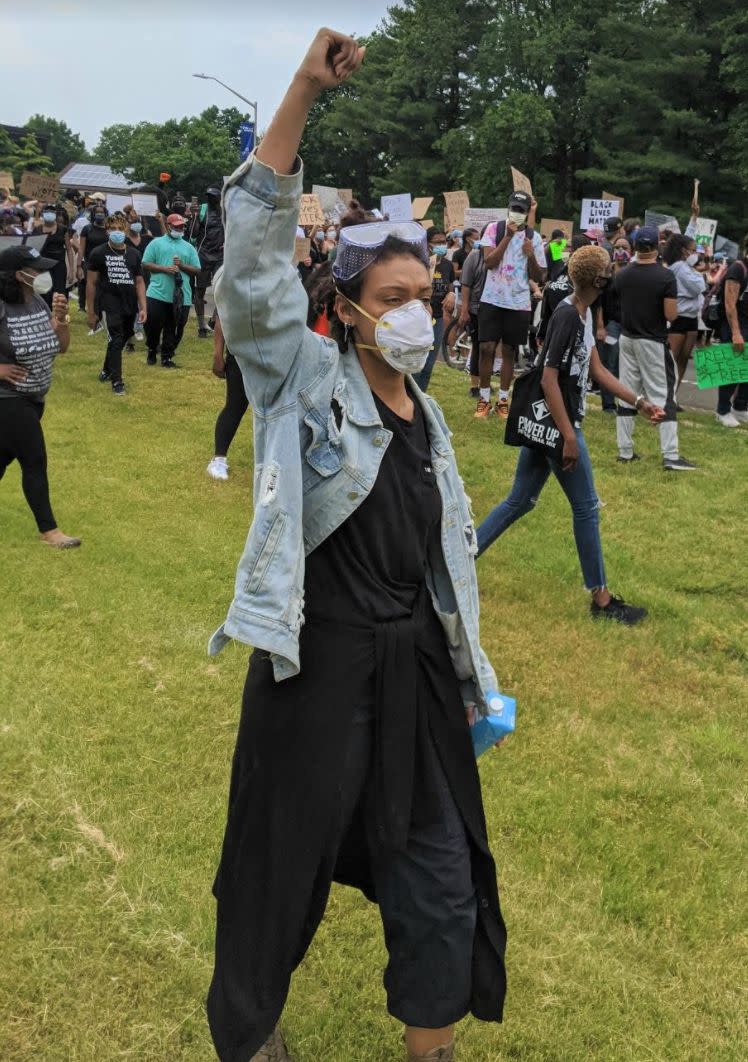I’m Immunocompromised. Marching For George Floyd Could Kill Me, But I’m Still Doing It.

Protesting in the streets might kill me. But if you ask America, we were never meant to live anyway.
In 2018, at the age of 23, I was diagnosed with acute myeloid leukemia ― a particularly aggressive, rapidly metastasizing form of blood cancer with a high mortality rate. According to Cancer.net, “the 5-year survival rate for people 20 and older with AML is about 25%” and “the average age for diagnosis of AML is 68.” AML makes up only about 1% of all cancers, and, as Cancer.ca notes, without treatment, “survival [for AML patients] is usually measured in days to weeks.”
Clearly, I drew the strange, mangled short straw from a bag of similarly crappy short straws.
But somehow, I’d held on to my life by a thread for three months before anyone even knew what was wrong with me. I was misdiagnosed by three different doctors — tested for HIV, mononucleosis, syphilis, chlamydia and every other sexually transmitted disease that non-Black medical professionals thought a 23-year-old, assumed-to-be woman with brown skin might have picked up somewhere along the way.
I heard every inappropriate, loaded question under the sun. Picture me, sick and traveling with my dog in an old van from my home state of New York to Florida, where my retired parents live. Picture me, driving through the night without rest, hoping that my parents would somehow be able to save me ― like young adults sometimes secretly do — and then dropping into a fever for three days once I’d arrived, just to sit in front of more doctors who didn’t look like me. How many sexual partners have you had? Picture me, terrified. Picture me, bouncing back to New York once this venture had proved fruitless, just to find more blank-faced doctors who had more important things to do than help me ― like go on vacation.
I answered every invasive question and underwent every test imaginable ― other than the simple CBC panel that would have diagnosed me within an hour.
My diagnosis finally...


